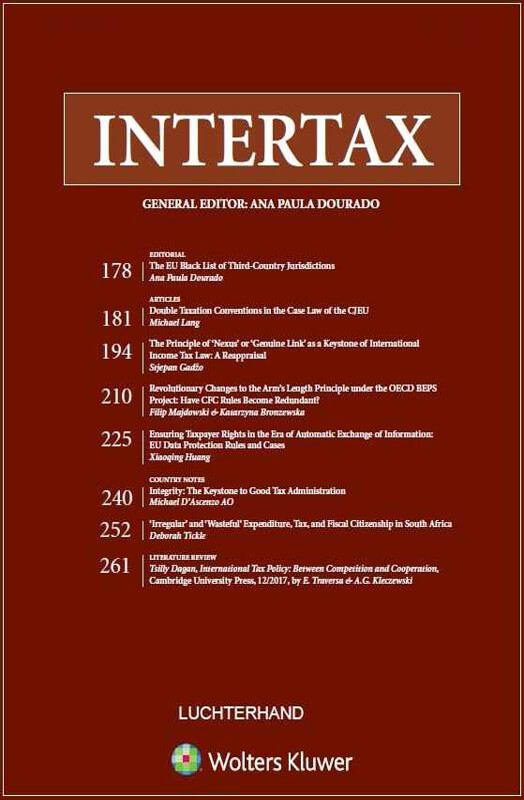Home > All journals > Intertax > 44(10) >

$25.00 - Rental (PDF) *
$49.00 - Article (PDF) *
Michael Lennard
Intertax
Volume 44, Issue 10 (2016) pp. 740 – 745
https://doi.org/10.54648/taxi2016063
Abstract
The Organisation for Economic Co-operation and Development (OECD) membership comprises thirty-four countries, and adding G20 countries which are not OECD members gives a total of forty-two countries participating most directly in the base erosion and profit shifting (BEPS) norm setting. There are therefore 151 UN Member countries whose participation in the BEPS process can be seen as relatively peripheral. Their political and representational significance and its relevance to global tax norm setting is often missed by a relevant but incomplete focus on the economic importance of the Group of Twenty (G20). The application to, and adaptation of, the BEPS outcomes to those countries, the likelihood of their commitment to such outcomes, and the way in which any such commitment is likely to find expression in practice are important to businesses economically engaging with such countries. In particular, an awareness of the way in which such countries are likely to view BEPS norm development and implementation, and to add to or depart from it on issues like the taxation of the services economy, should be a necessary part of any business planning, especially for global multinational enterprises (MNEs) seeking to engage with those countries as long-term business and development partners going forward. This article considers some of the key BEPS Actions and ‘Inactions’ in this context.
Extract
